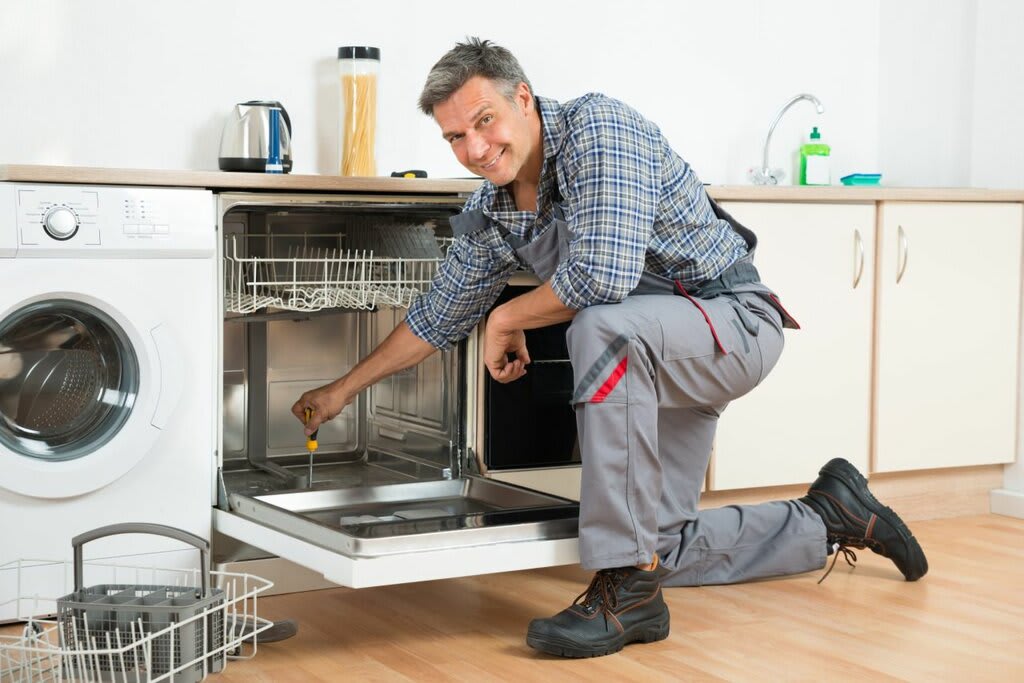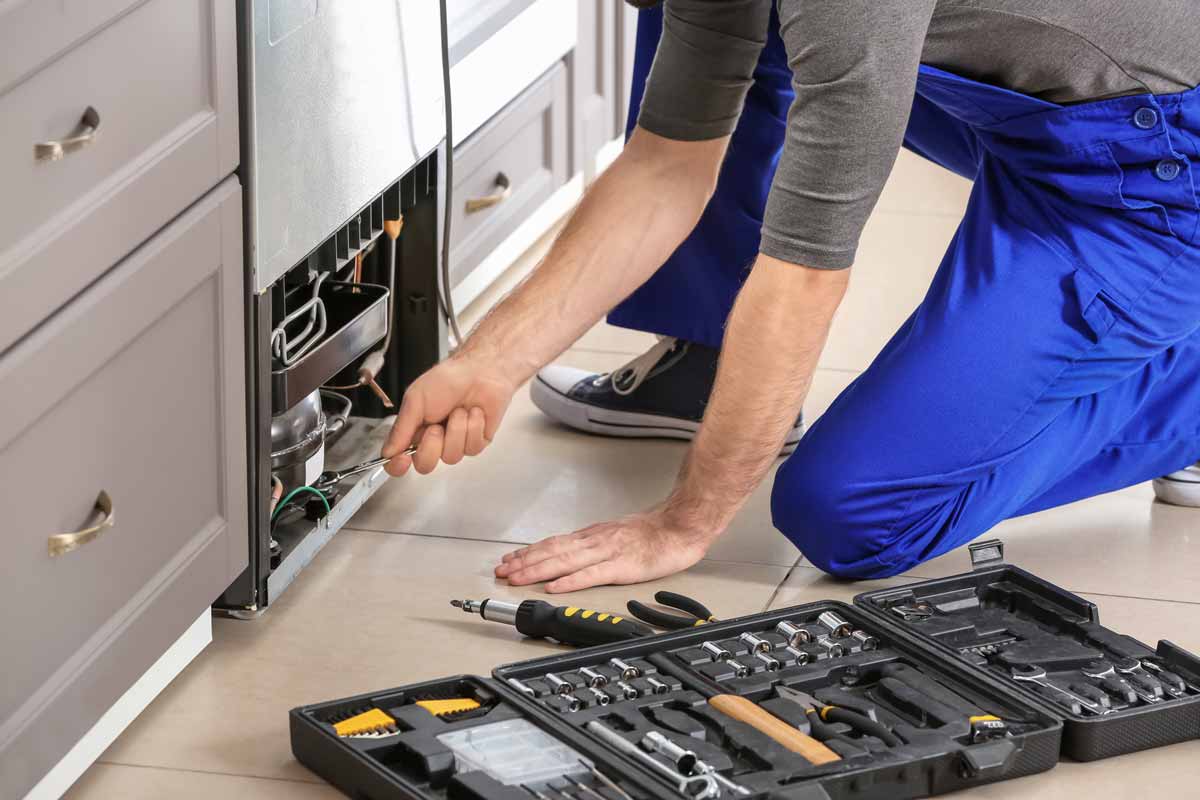The Ultimate Overview to Understanding Device Repair Work in your home
When your fridge stops cooling or your oven declines to heat, it can feel overwhelming. Comprehending home appliance repair in the house can conserve you time and cash. You'll discover to recognize signs and symptoms, make use of important devices, and comply with an organized troubleshooting procedure. Yet before you begin, there are critical security precautions you need to take into consideration. What are the most common problems, and just how can you fix them? Let's check out the fundamentals.
Typical Appliance Issues and Their Symptoms
When your appliances begin acting up, it's necessary to acknowledge the signs early. Overlooking them can lead to larger problems and costly repair work. If your fridge isn't cooling correctly, you could discover cozy spots or condensation creating. This could indicate a falling short compressor or a blocked vent.Your dishwasher may show troubles with unclean recipes or uncommon noises throughout cycles. If you hear grinding or clanking, it's time to investigate.A washing equipment that will not rotate or drain can leave you with soggy laundry, recommending a blocked drainpipe or a malfunctioning pump.Lastly, if your stove's temperature appears off or it takes forever to preheat, you may be managing a malfunctioning thermostat. By staying sharp to these signs and symptoms, you can deal with concerns before they rise right into significant repairs.
Crucial Tools for Appliance Repair
When you're dealing with device repairs in the house, having the right devices is essential. Fundamental hand tools like screwdrivers and pliers will help you take apart and deal with numerous home appliances, while electrical testing tools guarantee you're working securely with electrical wiring. Allow's look at what you require to get going on your repair work journey.
Standard Hand Devices
Having the right devices is important for effective appliance fixing in the house. Start with a dependable screwdriver collection, consisting of both flathead and Phillips types, as screws are common in appliance setting up. Pliers are likewise vital; they assist with gripping, twisting, and reducing cables or tiny elements. A pair of needle-nose pliers can get to difficult situations conveniently. You'll require a good flexible wrench for tightening up or loosening up nuts and bolts. An energy knife comes in handy for puncturing product packaging or insulation. Do not forget a tough workbench or surface area to safely arrange your tools and parts. With these standard hand devices, you'll be well-prepared to tackle most device repair work that come your way.
Electric Testing Tools
Alongside standard hand devices, electrical screening devices play an essential function in appliance repair. These devices assist you identify electric concerns and assurance devices function safely. A multimeter is important; it determines voltage, current, and resistance, allowing you to identify troubles promptly. A non-contact voltage tester is an additional must-have, letting you identify online cables without making straight contact, enhancing your safety. Secure meters are great for determining present flow in cables without separating them, saving you effort and time. In addition, circuit testers can quickly inspect if electrical outlets are operating properly. By utilizing these devices, you'll simplify your troubleshooting procedure and boost your repair work abilities, making appliance maintenance a lot easier.
Step-by-Step Overview to Diagnosing Device Issues
When your appliance acts up, it can be aggravating, but identifying the problem does not have to be frustrating. You'll learn to determine common issues and use effective fixing methods. Let's go through the actions to obtain your device back in functioning order.
Usual Appliance Problems

Repairing Strategies Clarified

Repairing Significant Cooking Area Appliances: A Closer Look
Have you ever before asked yourself exactly how to tackle typical issues with your kitchen area devices? Repairing significant kitchen area devices like fridges, ovens, and dish washers can be much easier than you think. Begin by recognizing the trouble-- whether it's a refrigerator not cooling or a stove that won't heat up. Typically, a simple reset or examining the source of power can solve the issue.For fridges, tidy the condenser coils and check the door seals. If your stove's not heating, evaluate the heating aspect and thermostat. Dish washers may just need a tidy filter or a reset to obtain them back at work. Always disconnect the home appliance prior to diving into fixings to ensure your safety.Don' t neglect to speak with the individual guidebook for certain troubleshooting ideas associated with your model. With a little bit of perseverance and the right devices, you can with confidence tackle home appliance repairs and save cash in the procedure!

Fixing Washing Equipments: Tips and Techniques
When your laundry home appliances begin acting up, it can feel overwhelming, yet troubleshooting them does not need to be a trouble. Begin by checking the power supply. Confirm the appliance is plugged in and the electrical outlet is working. Next off, inspect the door or lid switch; a faulty button can protect against the device from operating.For washers, if it's not rotating, look for out of balance lots. useful site Rearranging the clothes might address the issue. If your dryer isn't home heating, tidy the lint filter and inspect the air vent for blockages.Listen for uncommon sounds; they can show a trouble. If your device is leaking, examine the hoses for cracks or loosened links. Record any kind of mistake codes displayed on electronic displays, as they can lead you in recognizing the concern. Finally, get in touch with the user manual for specific troubleshooting tips associated to your design.
Security Precautions to Take During Services
Before you start any kind of device fixings, it's important to focus on safety to prevent crashes or injuries. Unplug the appliance or turn off the circuit breaker to assure no power reaches it while you function. Use shielded devices to decrease the danger of electric shock. Use safety goggles and gloves to protect on your own from sharp edges or debris (Dependable Refrigeration & Appliance Repair Service Dryer repair near me).Make particular your workspace is tidy and well-lit, so you can see what you're doing. Maintain children and family pets away from the area to stay clear of interruptions and prospective hazards. If you're managing gas appliances, be additional mindful; look for leakages before proceeding.Take your time, and don't hurry with repair work. If you really feel unsure concerning any type of step, it's better to stop briefly and study than to guess. Adhering to these safety measures will aid produce a safer environment for your DIY home appliance fixing task
When to Call a Specialist for Assistance
Exactly how do you understand if it's time to call a professional for home appliance repairs? If you've attempted fundamental troubleshooting without success, it's a clear indicator. If your home appliance still won't start or shows unusual sounds after resetting it, do not think twice to look for professional help.When you notice Go Here leakages, smoke, or melting scents, focus on security and call a pro immediately. These issues can cause more significant damages or pose threats to your home.Also, if your device is under service warranty, getting in touch with a specialist is typically the very best route. They can ensure that repair work will not nullify your service warranty, conserving you money in the lengthy run.Finally, if you're uncertain or uncomfortable with complex fixings, it's wise to leave it to the specialists. Remember, tackling complicated concerns without the appropriate proficiency can cause pricey errors. Count on a professional when unsure!
Often Asked Questions
Just How Can I Stop Device Troubles in the Future?
To stop appliance problems in the future, you should do regular maintenance, look for damage, clean filters, and stay clear of overloading. Staying positive will certainly aid extend their lifespan and maintain them running smoothly.
What Are the Most Common DIY Home Appliance Repair Mistakes?
You may neglect security preventative measures, miss repairing steps, or make use of wrong devices when attempting do it yourself home appliance fixings. Rushing the procedure or disregarding maker standards can lead to more considerable issues and expensive mistakes. Stay client and educated!
How Do I Know if a Part Demands Replacement?
You can tell if a part requires substitute by checking for uncommon noises, leaks, or irregular performance. If the appliance has a hard time to operate properly or reveals noticeable damage, it's most likely time for a replacement.
Can I Use Generic Parts for Home Appliance Repair Works?
Yes, you can utilize common parts for device repair work, yet ascertain they're compatible - Maytag Washing machine repair Dependable Refrigeration & Appliance Repair Service. Generic parts could conserve you cash, however they can influence efficiency or long life, so evaluate your choices carefully before choosing
What Warranties Cover Device Repair Works?
Many home appliance service warranties cover repair services for manufacturing defects, yet they usually exclude damage from abuse. Inspect your warranty terms meticulously, as some may need using licensed technicians and initial components for protection to remain legitimate.